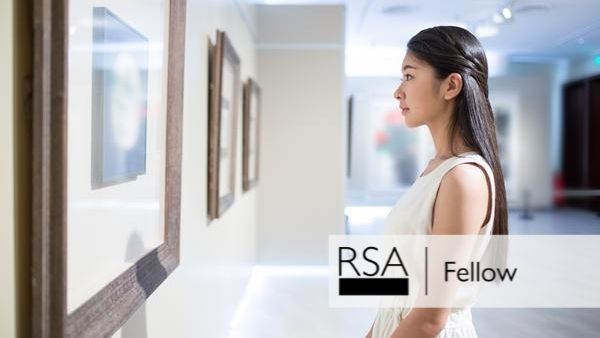Three days after we are scheduled to leave the European Union it will be April Fools’ Day. Dr Amy Pollard FRSA believes the time is right to play with our contemporary anxieties to create a collective chuckle and wants your help.
Britain has never needed a laugh more. Tensions are running high and Brexit divisions are seemingly intractable. Over the next few weeks the next chapter of British history will be mapped out, but the only thing that seems certain is that it will be filled with resentment. Whatever happens on 29th March, this date will be significant and loaded with emotion.
For hundreds of years, in Britain and in other European countries, it has been traditional to play jokes and tricks on April Fools’ Day. Compared to our other annual customs (such as Christmas, Easter, Valentines Day) April Fools’ Day is relatively low key. As a festival it is difficult to commercialise. Jokes tend to be small scale; confined to single households and workplaces or spoof articles in individual newspapers. There is however, a high level of cultural saturation with the concept of April Fools’ Day and almost everyone in the UK knows what it is.
We aren’t going to heal the wounds that have been created and exposed by Brexit through an April Fools’ Joke. But sharing a laugh together, as a country, would be a positive first step to the phase of British history that will begin after 29th March. Even if it were just for a moment, enjoying a Great British April Fool would help us to remember that we can still share ‘something’, no matter how different we are.
It has been decades since Britain has had a really good April Fools Joke. Looking back through the archives, a high-water mark that sticks in many people’s memories is the Spaghetti Harvest Hoax (1957), where BBC’s Panorama announced that thanks to a mild winter and the virtual elimination of the dreaded spaghetti weevil, Swiss farmers were enjoying a bumper spaghetti crop.
Another big hit came in 1977 with the Guardian’s seven-page supplement devoted to San Serriffe, a series of semi-colon shaped islands in the Indian Ocean whose main islands were named Upper Caisse and Lower Caisse. The article provoked a stream of inquires from readers about this idyllic holiday location, and is credited with launching the UK press tradition for April tomfoolery.
Patrick Moore also won a place in the annals for his 1976 gravity joke. The esteemed astronomer announced on BBC Radio 2 that at 9:47 a once-in-a-lifetime astrological event would temporarily counteract and lessen the Earth’s gravity, and told his listeners that if they jumped in the air at the exact moment the alignment occurred, they would experience a strange floating sensation. As Moore declared “jump now!”, the BBC switchboard lit up with listeners who had felt the effect.
Perhaps it makes sense that these golden April Fools jokes were played decades ago, in an age where social deference and levels of trust were high. Could Britain be fooled today? Could we enjoy it?
As Charlie Chaplin said, to truly laugh, you must take your pain and play with it. In the 1950s, 60s and 70s, the pain of Britain revolved around anxieties of worldliness, of provincialism, of ignorance. These insecurities animate the jokes of the era. Today, our pain revolves around other things: separateness, mistrust and inequality. To play a great joke for our times, we would have to play with our pain today.
A Great British April Fool for 2019 would do things differently. We have new tools available – notably social media – and these offer the potential to play a joke that is radically more inclusive and has an entirely different power dynamic at its heart. In 2019 we have the potential to create a joke that doesn’t just play out in a single household, single workplace, through a single broadcaster or single newspaper, but across a host of different people and institutions. As a nation that has always prided itself on our sense of humour, 2019 should be the year that Britain ups its game. It is time for a Great British April Fool.
We are developing an audacious plan, and will be holding an open meeting at a secret location in central London on the morning of Saturday 2nd March; and online in the evening. All are very warmly welcome. If you are interested in joining us, please sign up to our mailing list or follow us @MHC_UK.
Dr Amy Pollard is Director of Mental Health Collective, the hub for unlocking social and collective approaches to mental health. She tweets at @AmyRPollard
Related articles
-
Artificial intelligence: the creative edge
Alex Soulsby
How should schools respond to AI? Alex Soulsby calls for a greater focus on the arts to help students develop their creativity, critical thinking, adaptability and emotional intelligence.
-
The magic of the ocean
Fiann Paul
The oceans are the least accessible and most mysterious regions on Earth, and humankind has a deep and eons-old relationship with the sea. Fiann Paul, FRSA, selects five stunning animated films that explore this emotional, almost mystical, bond, and warns that we abuse the oceans at our peril
-
Curating Tomorrow
Henry McGhie
Museums curating consultant Henry McGhie asks how museums and other cultural institutions can support people’s participation in climate action and sustainable development?




Be the first to write a comment
Comments
Please login to post a comment or reply
Don't have an account? Click here to register.